METHYLPHENIDATE - ORAL
PHONETIC PRONUNCIATION: (METH-il-FEN-i-date)
COMMON BRAND NAME(S): Ritalin
GENERIC NAME(S): methylphenidate HCl
Uses
USES: This medication is used to treat attention deficit hyperactivity disorder - ADHD. It works by changing the amounts of certain natural substances in the brain. Methylphenidate belongs to a class of drugs known as stimulants. It can help increase your ability to pay attention, stay focused on an activity, and control behavior problems. It may also help you to organize your tasks and improve listening skills. This medication is also used to treat a certain sleep disorder (narcolepsy).
How to use METHYLPHENIDATE - ORAL
HOW TO USE: Read the Medication Guide provided by your pharmacist before you start taking methylphenidate and each time you get a refill. If you have any questions, ask your doctor or pharmacist. Take this medication by mouth as directed by your doctor, usually 2 or 3 times a day. This medication is best taken 30 to 45 minutes before a meal. However, if you have stomach upset, you may take this medication with or after a meal or snack. Taking this medication late in the day may cause trouble sleeping (insomnia). Take this medication regularly to get the most benefit from it. To help you remember, take it at the same times each day. The dosage is based on your medical condition and response to treatment. Your doctor may direct you to gradually increase or decrease your dose. Also, if you have used it for a long time, do not suddenly stop using this drug without consulting your doctor. This medication may cause withdrawal reactions, especially if it has been used regularly for a long time or in high doses. In such cases, withdrawal symptoms (such as depression, suicidal thoughts, or other mental/mood changes) may occur if you suddenly stop using this medication. To prevent withdrawal reactions, your doctor may reduce your dose gradually. Consult your doctor or pharmacist for more details, and report any withdrawal reactions right away. When used for a long time, this medication may not work as well. Talk with your doctor if this medication stops working well. Though it helps many people, this medication may sometimes cause addiction. This risk may be higher if you have a substance use disorder (such as overuse of or addiction to drugs/alcohol). Take this medication exactly as prescribed to lower the risk of addiction. Ask your doctor or pharmacist for more details. Tell your doctor if your condition does not improve or if it worsens.
Side Effects
Precautions
Interactions
Overdose
Images
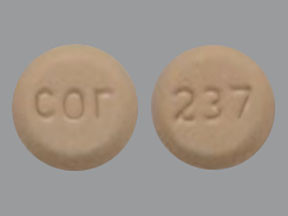
- color
- light orange
- shape
- round
- imprint
- cor, 237
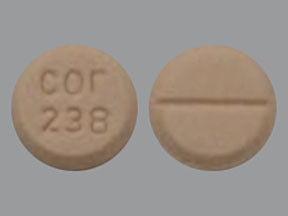
- color
- light orange
- shape
- round
- imprint
- cor 238
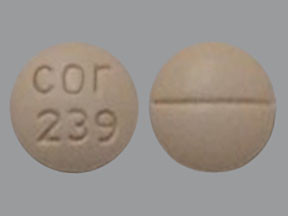
- color
- light orange
- shape
- round
- imprint
- cor 239
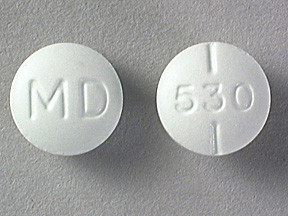
- color
- blue-green
- shape
- round
- imprint
- MD, 530
Reviews
Faq for METHYLPHENIDATE - ORAL
Methylphenidate oral is used to treat attention deficit hyperactivity disorder (ADHD) in children and adults.
Methylphenidate oral increases the levels of certain chemicals in the brain, which helps to improve concentration and reduce hyperactivity and impulsivity associated with ADHD.
Common side effects of methylphenidate oral may include decreased appetite, trouble sleeping, nervousness, dizziness, and stomach upset.
Yes, methylphenidate oral can also be used to treat narcolepsy, a sleep disorder that causes excessive daytime sleepiness and sudden loss of muscle control.
Methylphenidate oral can be habit-forming if used in higher doses or for longer periods than prescribed. It is important to take methylphenidate oral exactly as prescribed by your doctor.
If you miss a dose of methylphenidate oral, take it as soon as you remember. However, if it is close to the next scheduled dose, skip the missed dose and continue with your regular dosing schedule.
Methylphenidate oral may interact with certain medications, including monoamine oxidase inhibitors (MAOIs), blood pressure medications, and anticonvulsants. It is important to inform your doctor about all the medications you are taking before starting methylphenidate oral.
Methylphenidate oral may start working within 30 to 60 minutes after taking the medication. However, the full effects may not be apparent until several weeks of continuous use.
Methylphenidate oral should only be used during pregnancy or breastfeeding if the potential benefits outweigh the risks. It is essential to consult with your doctor before taking methylphenidate oral in these situations.
Warning
WARNING: Misuse or abuse of methylphenidate can result in serious (possibly fatal) heart and blood pressure problems. This medication can be habit-forming and should be used cautiously by people who have mental/mood disorders or a substance use disorder (such as overuse of or addiction to drugs/alcohol). Before using this medication, tell your doctor if you have a personal or family history of a substance use disorder. Do not increase your dose, use it more often, or use it for a longer time or in a different way than prescribed. Doing so may result in a decrease in the effect of this drug, drug dependence, or abnormal thoughts/behavior. Your doctor may monitor you for a while after the medication is stopped, especially if you have taken this drug for a long time or in high doses. (See also How to Use section.)
Disclaimer
IMPORTANT: HOW TO USE THIS INFORMATION: This is a summary and does NOT have all possible information about this product. This information does not assure that this product is safe, effective, or appropriate for you. This information is not individual medical advice and does not substitute for the advice of your health care professional. Always ask your health care professional for complete information about this product and your specific health needs.
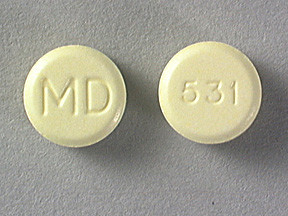
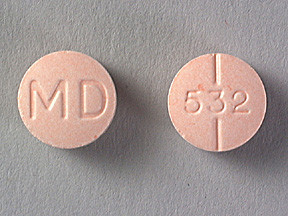
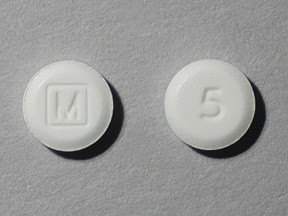
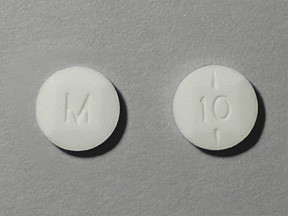
No Reviews Yet